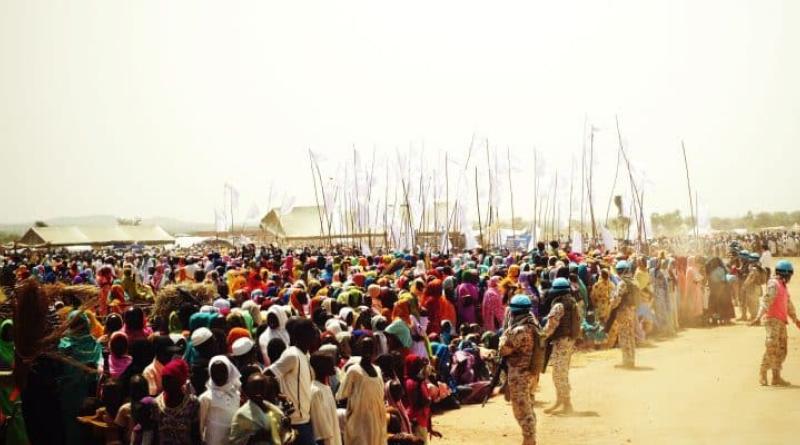AFRICA: According to the UNDP, climate change is exacerbating violence

In a report presented on 24 May 2023 in Geneva, Switzerland, the United Nations Development Programme (UNDP) establishes a causal link between climate change and the rise in armed conflicts in Africa. The report, entitled "On the Road to Extremism in Africa: Pathways to Recruitment and Disengagement", identifies the causes of the explosion in the activities of non-state armed groups, and points the finger at the climate crisis as a catalyst for the escalation of violence on the continent.
The current climatic and environmental crises are affecting all aspects of life in Africa, including security. Presented on 24 May 2023 in Geneva, Switzerland, a report by the United Nations Development Programme (UNDP) includes climate change among the root causes of the rise in violent extremism in sub-Saharan Africa. The study focused on eight sub-Saharan African countries: Burkina Faso, Cameroon, Chad, Mali, Niger, Nigeria, Somalia and Sudan.
The report clearly cites climatic and environmental crises as factors in the escalation of terrorist violence in this part of Africa. Indeed, non-state armed groups are taking advantage of “environmental degradation and inequitable land management to position themselves as vigilantes, regulators of access to natural resources and providers of judicial and administrative services, as well as substitutes for livelihoods”. The authors of the report warn that, although these armed groups have not yet “made climate change a major message, they could easily develop a global narrative presenting it as the ultimate form of structural violence imposed by developed countries on the rest of the world”.
The report describes a region that has become “the global epicentre of violent extremist activity”. In 2021, almost half of all terrorism-related deaths were recorded in sub-Saharan Africa, with more than a third in four countries: Somalia, Burkina Faso, Niger and Mali. Terrorist activities have also spread to other parts of the continent, such as Mozambique, and are having a “devastating” impact on lives, livelihoods and prospects for peace and development.
A more critical climate crisis
At the Regional Conference on Climate Change, Peace and Security in West Africa and the Sahel, held from 6 to 7 April 2022 in Dakar, Senegal, participants warned of conflicts arising from the effects of climate change in West Africa and the Sahel. “Deprived of livestock, vegetable gardens and water points, people are migrating to the few remaining resources that have not been damaged by the drought. Once there, competition for access to water or livestock generates tensions that can inevitably degenerate into conflict”, explained Hadjia Zara Mamadou, President of the Association of Nigerien Women Against War and former mayor of Agadez.
In West Africa, the Intergovernmental Panel on Climate Change (IPCC) predicts an average temperature rise of 3.3°C by the year 2100, which could reach 4.7°C in the northern half of Mali.
Read also-AFRICA: Climate change threatens security in West and Sahel
To remedy the consequences of climate change on security in sub-Saharan Africa, the UNDP report calls, among other solutions, for the concepts of climate crisis and political ecology to be taken into account in analyses. The study adds that conflict analysis should include not only the “political dynamics between diverse identities, livelihoods, political groups and violent mobilisers”, but also the relationship between human populations and the “ecosystems in which they live”.





